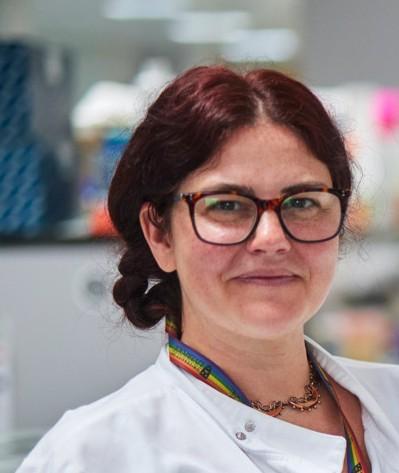Pseudomonas aeruginosa research shows the promise of phage treatments in the fight against antibiotic resistance
There are many infection-causing strains of P. aeruginosa. If infection is detected early, it can be cleared or kept under control with antibiotic treatment. However, if it takes root and starts to become resistant to antibiotics (also known as ‘antimicrobial resistance’), it can cause problems. Antibiotic-resistant strains of P.aeruginosa are a World Health Organisation (WHO) ‘priority 1 pathogen’, which means it poses one of the greatest threats to human health, and is in urgent need of new antibiotics and treatments.
The findings of research led by Trust-funded scientist Professor Jo Fothergill and Professor Aras Kadioglu at the University of Liverpool were recently been published in Nature Communications, a leading science journal.

The researchers have been investigating the use of ‘phages’ to treat bacterial infections. Phages, or to give them their full name, bacteriophages, are viruses that ‘eat’ bacteria. In mice models of P. aeruginosa infection that were completely resistant to antibiotics, the researchers used phages to, first of all, treat the majority of the P. aeruginosa infection that was present. They also found that a pre-treatment with phage meant that the remaining P. aeruginosa were a lot less resistant to traditional antibiotics. Treatment with tobramycin or meropenem after phages was able to clear P. aeruginosa infection in the lungs.
Professor Jo Fothergill said: “The potential to use phage therapy to reduce the bacterial burden of resistant strains of P. aeruginosa and simultaneously re-sensitise bacteria to antibiotics is game changing. These are really exciting times when it comes to treatment of bacterial infections. We hope that we can continue to develop these findings to help effectively treat P. aeruginosa in the lungs of people with cystic fibrosis and help them live a longer healthier life.”
This is really positive news and brings us one step closer to being able to more easily treat these lung infections that are so harmful to people with cystic fibrosis. We are hopeful that this research will continue to progress and be able to reach clinical trial stage soon, to help minimise the harm that these bugs cause people with CF.
Dr Lucy Allen, Director of Research and Healthcare Data at Cystic Fibrosis Trust
Read the full research report here: Ashworth EA, Wright, RCT, Shears, RK et al. Exploiting lung adaptation and phage steering to clear pan-resistant Pseudomonas aeruginosa infections in vivo. Nat Commun 15, 1547 (2024)
To help us continue to fund crucial research into cystic fibrosis and its complications, donate today to help everyone with CF live a life unlimited.
